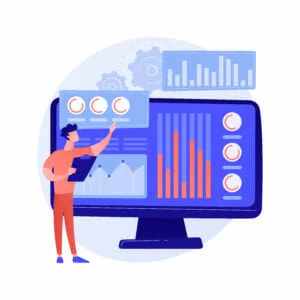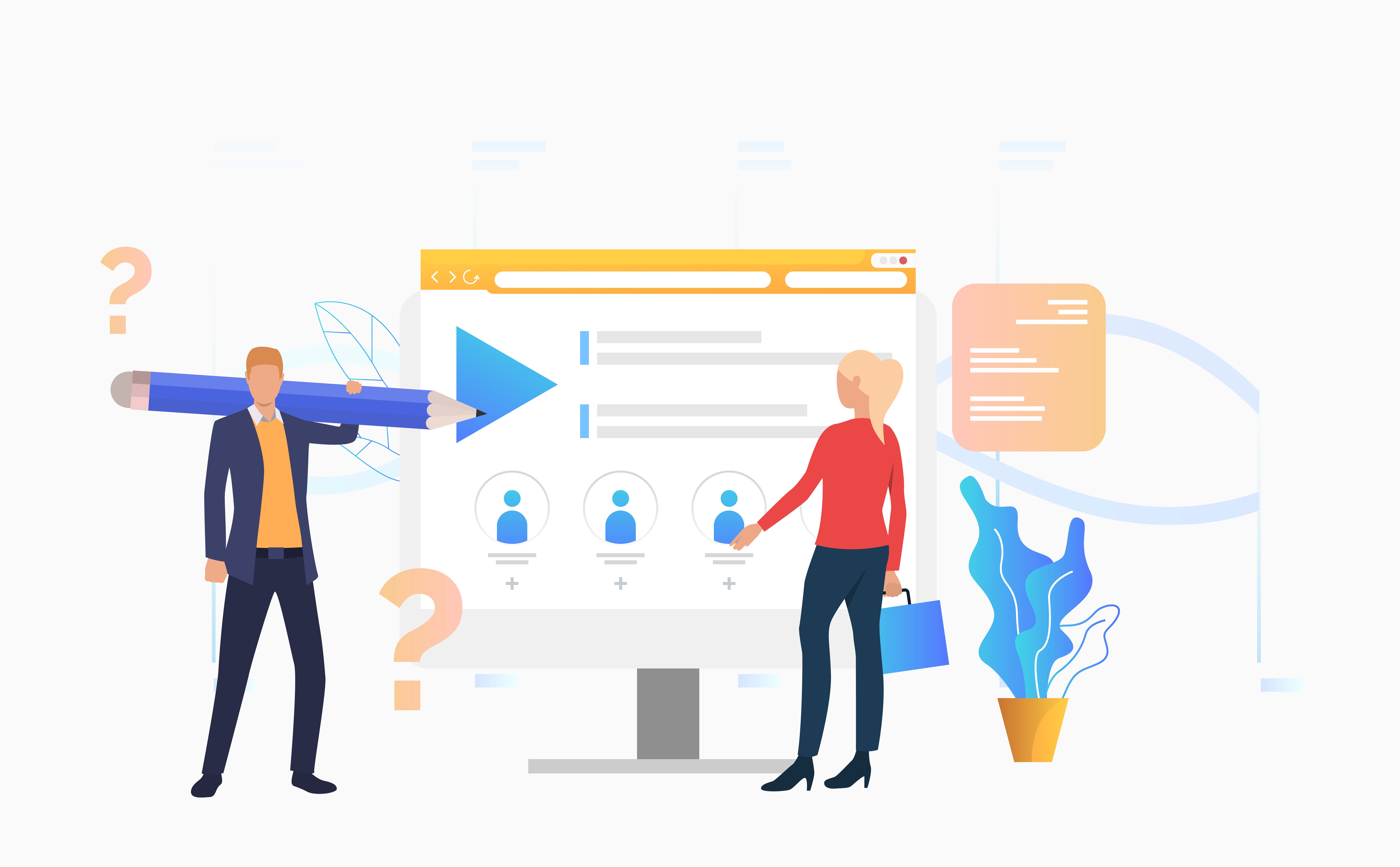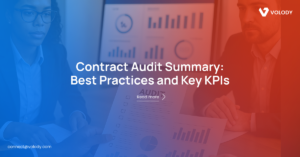Contract Lifecycle Management (CLM) offers comprehensive solutions organizations adopt to streamline and optimize the entire process of managing contracts, from initiation to execution, and through to renewal or termination. Contracts are the backbone of business relationships, governing agreements between parties and outlining obligations, terms, and conditions.
CLM aims to enhance efficiency, mitigate risks, and maximize the value derived from contracts by providing a structured framework for managing them throughout their lifecycle. This encompasses various stages, including contract creation, negotiation, approval, execution, monitoring, and renewal or termination.
A contract is more than just an outline of your rights and obligations in a deal. It is a corporate asset that requires management and review. Contract lifecycle management (CLM) is a system that makes making and approving contracts easier.
It organizes how documents are stored and found and provides a way to review and renew contracts. With CLM, organizations can better handle contracts, making sure each one meets high standards and gets approved properly for cost and risk.
This article aims to explore effective strategies to evaluate CLM vendors that best align with the organization’s needs.
Related Article: Contract Management Software Free Trial: Try AI CLM Software
Who uses a CLM platform?
CLM software is commonly used by corporate legal and commercial departments within enterprises dealing with a substantial number of standard contracts. It offers advantages in legal automation for streamlined processes.
However, it’s not solely legal teams some solutions like Volody can also facilitate and enhance processes for various other departments within the organization.
Finance:
CLM software offers several advantages for finance teams:
1. It lets them quickly find contract information, so they can predict money coming in and going out accurately.
2. They can stay on top of contract renewals with automatic reminders.
3. They have control over contract payment terms, ensuring important deals get the right approval at the right time.
Related Article: CLM Software for Finance Teams
Procurement:
CLM software makes it easy for procurement teams to see all the details in contracts quickly. They can find out things like when deliveries should happen, who the suppliers are, when payments are due, and more in just a few seconds.
Using CLM software, procurement teams can find ways to save money and negotiate better deals before contracts renew. It helps procurement teams bring new vendors on board smoothly. They automate vendor agreements and make the whole contracting process easier.
Related Article: CLM Software For Procurement Teams
Sales:
Sales teams benefit from CLM software as it simplifies the sales process, requiring fewer tools and steps, which makes it quicker and easier for sales reps to complete their tasks.
Moreover, sales representatives no longer have to manually input information because contract data is automatically captured and sent to the CRM system for reporting purposes.
Related Article: CLM Software for Sales Teams
Understanding the Need for a CLM Software
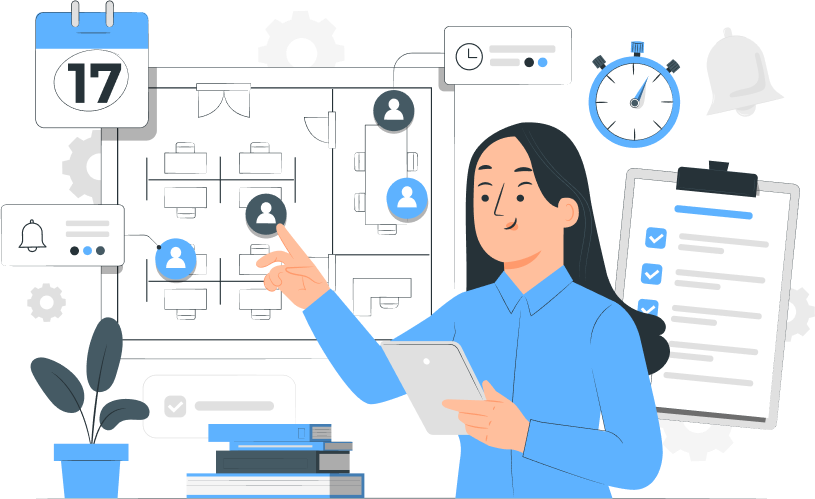
Understanding the need for CLM software is essential for businesses looking to optimize their contract management processes, improve compliance, reduce risks, and drive overall operational efficiency. Here’s why CLM software is essential:
- Efficiency: CLM software automates manual tasks, such as contract creation, approval workflows, and tracking key dates, which saves time and reduces errors.
- Centralization: With CLM software, all contracts are stored in a centralized repository, making it easy to access, search, and manage them, thereby improving organization and accessibility.
- Risk Mitigation: By providing visibility into contract terms, obligations, and expiration dates, CLM software helps businesses identify and mitigate risks associated with contractual agreements.
- Cost Savings: CLM software helps businesses negotiate better terms with vendors, minimize contract discrepancies, and avoid penalties for non-compliance, resulting in cost savings over time.
- Scalability: As businesses grow and their contract volumes increase, CLM software can scale to accommodate larger contract portfolios and more complex workflows, ensuring continued efficiency and effectiveness.
Related Article: Do you Need A Contract Management Software?
Essentials features to look for a CLM vendor

Let’s delve deeper into each essential feature that contract management software must have:
Approval Workflow:
- Hierarchical Routing: This allows contracts to be directed to the appropriate stakeholders based on predefined rules, roles, or permissions.
- Parallel Approval Paths: Permits multiple stakeholders to review and approve contracts simultaneously, expediting the approval process.
- Conditional Approval Logic: Enables the establishment of conditional rules for approvals based on specific criteria such as contract value or type.
- Audit Trails: Provides a transparent history of all actions taken during the approval process, ensuring accountability and compliance with regulatory requirements.
Automated Drafting:
- Template Library: Offers a repository of standardized contract templates that can be customized to accommodate specific terms and conditions.
- Clause Library: Stores reusable clauses and provisions that can be easily inserted into contracts to ensure consistency and compliance.
- Dynamic Fields: Allows for the creation of fillable fields within templates, enabling users to input variable data that automatically populates throughout the contract.
- Document Assembly: Seamlessly combines pre-existing clauses and templates to generate comprehensive contracts tailored to individual needs.
Dashboard & Reporting:
- Customizable Dashboards: This enables users to configure dashboards according to their preferences, displaying relevant metrics, charts, and graphs.
- Key Performance Indicators (KPIs): Tracks metrics such as contract cycle time, approval bottlenecks, and contract value to assess performance and identify areas for improvement.
- Scheduled Reports: Automates the generation and distribution of reports on contract status, compliance, and other critical insights to stakeholders.
- Data Visualization: Presents contract data in visually intuitive formats such as heat maps, histograms, and pie charts for easier analysis and decision-making.
Contract Analysis:
- Natural Language Processing (NLP): Utilizes machine learning algorithms to extract key terms, clauses, and metadata from contracts, enhancing visibility and understanding.
- Risk Assessment: Identifies potential risks and liabilities within contracts by analyzing language, context, and historical data, enabling proactive risk mitigation strategies.
- Compliance Monitoring: Monitors contracts for compliance with internal policies, industry regulations, and legal requirements, flagging non-compliant clauses or deviations for review.
- Contract Intelligence: Provides actionable insights and recommendations based on contract data analysis, empowering users to optimize contract terms, negotiations, and outcomes.
These features collectively empower organizations to efficiently manage their contract lifecycles, streamline processes, mitigate risks, and drive better business outcomes.
Related Article: Top Contract Management Tips For Legal Professionals
How to evaluate CLM Vendors?

Understanding Your Organization’s Needs
- Contract Lifecycle: Identify the various stages of the contract lifecycle in your organization, such as contract creation, negotiation, approval, management, and renewal. Determine which stages need improvement and automation.
- Key Stakeholders: Find the important people who are part of managing contracts, like the legal, procurement, finance, and operations teams. Understand their specific requirements and pain points to ensure the CLM solution caters to their needs.
- Legal Team: Involve your legal team in the evaluation process to ensure that the CLM solution meets legal requirements, supports compliance, and provides robust contract management features.
Assessing the Scalability of Solutions
- Scalability: Determine if the CLM solution can accommodate your organization’s current and future needs. Consider factors such as the number of contracts, users, and departments that can be supported by the system.
- Long-Term Support: Evaluate the vendor’s commitment to long-term support and product development. Ensure that they regularly update and enhance their CLM solution to meet evolving industry standards and customer requirements.
- Integration with Existing Systems: Assess how well the CLM solution integrates with your existing systems, such as Enterprise resource planning (ERP). Seamless integration is crucial for efficient data flow and workflow automation.
- Growth Potential: Consider how the CLM solution can support your organization’s growth plans. When choosing software, see if it can work in many places, use different languages, and manage more contracts as your organization gets bigger.
Checking for Compliance and Security Measures
Compliance and security are critical considerations when evaluating CLM vendors. Here’s what you need to check:
- Compliance: Ensure that the CLM solution complies with relevant industry regulations and standards, such as GDPR or HIPAA. The vendor should have robust compliance measures in place to protect sensitive data and ensure data privacy.
- Security Measures: Evaluate the security measures implemented by the vendor to protect your contract data. Check if the software keeps data safe when it’s stored and when it’s being sent, make sure it’s in a secure place, and control who can see what.
- Audit Trails and Reporting: See if the CLM solution can show a record of changes made to contracts and create reports to check if everything follows the rules. This ensures transparency and accountability in contract management processes.
Comparing Pricing Models for Budget Compatibility
When evaluating CLM vendors, it’s important to compare their pricing models and ensure compatibility with your budget. Here are some common pricing models to consider:
- Per-User Licensing: This model charges a fee for each user accessing the CLM solution. It is suitable for organizations with a small number of users who require full access to the system.
- Tiered Licensing: In this model, the pricing is based on the number of users or departments using the CLM solution. It allows for growth potential as your organization grows.
- Subscription-Based Pricing: This model offers a monthly or annual subscription fee for using the CLM solution. It is suitable for organizations with fluctuating contract volumes or short-term contract management needs.
Related Article: How To Write Effective Indefinite Delivery Contracts
Strategies for Implementing CLM Software

When you’re getting CLM software ready to use, being prepared is important. Get your team ready first by talking to them clearly and giving them training. Make sure the right people are involved from the beginning to make the switch go well.
Make sure the new software works well with your existing systems by planning carefully and fixing any problems before you start. Making sure everything goes smoothly depends on careful planning and making sure the software fits how your organization works.
Preparing Your Team for Transition
Before implementing a new CLM system, preparing your team for transition is crucial. Conduct training sessions to familiarize them with the CLM solution and its benefits. Address concerns and highlight how the software will streamline workflows and improve contract management processes.
Make sure important stakeholders join in from the beginning to help the transition go smoothly. Emphasize the need to adjust to the new CLM platform and offer continual support to tackle any issues that come up.
Setting Up for Successful Onboarding
To make sure everyone gets started smoothly with your chosen CLM vendor, start by setting up clear ways to talk with all the important people involved. Provide comprehensive training sessions tailored to each user group’s needs. Implement a structured timeline for the onboarding process, including milestones and checkpoints to track progress effectively.
Additionally, assign dedicated resources to guide users through the initial stages of adoption, addressing any concerns promptly. By creating a helpful environment and taking action early, you can make sure the switch to your new CLM solution goes well.
Ensuring Smooth Integration with Existing Systems
Seamless integration with existing systems is crucial when incorporating a new CLM solution. Ensuring compatibility with current workflow processes and data structures is essential for a successful transition. Integration challenges can arise from differences in data formats, APIs, or system requirements.
Organizations can avoid problems and get the most out of their CLM platform by carefully planning where things fit together and testing them well. Smooth integration enhances efficiency and effectiveness across the contract lifecycle, leading to improved overall performance and user satisfaction.
Related Article: Negotiating Adhesion Contracts: Contracts That Stick!
Maximizing the Benefits of Your CLM Solution
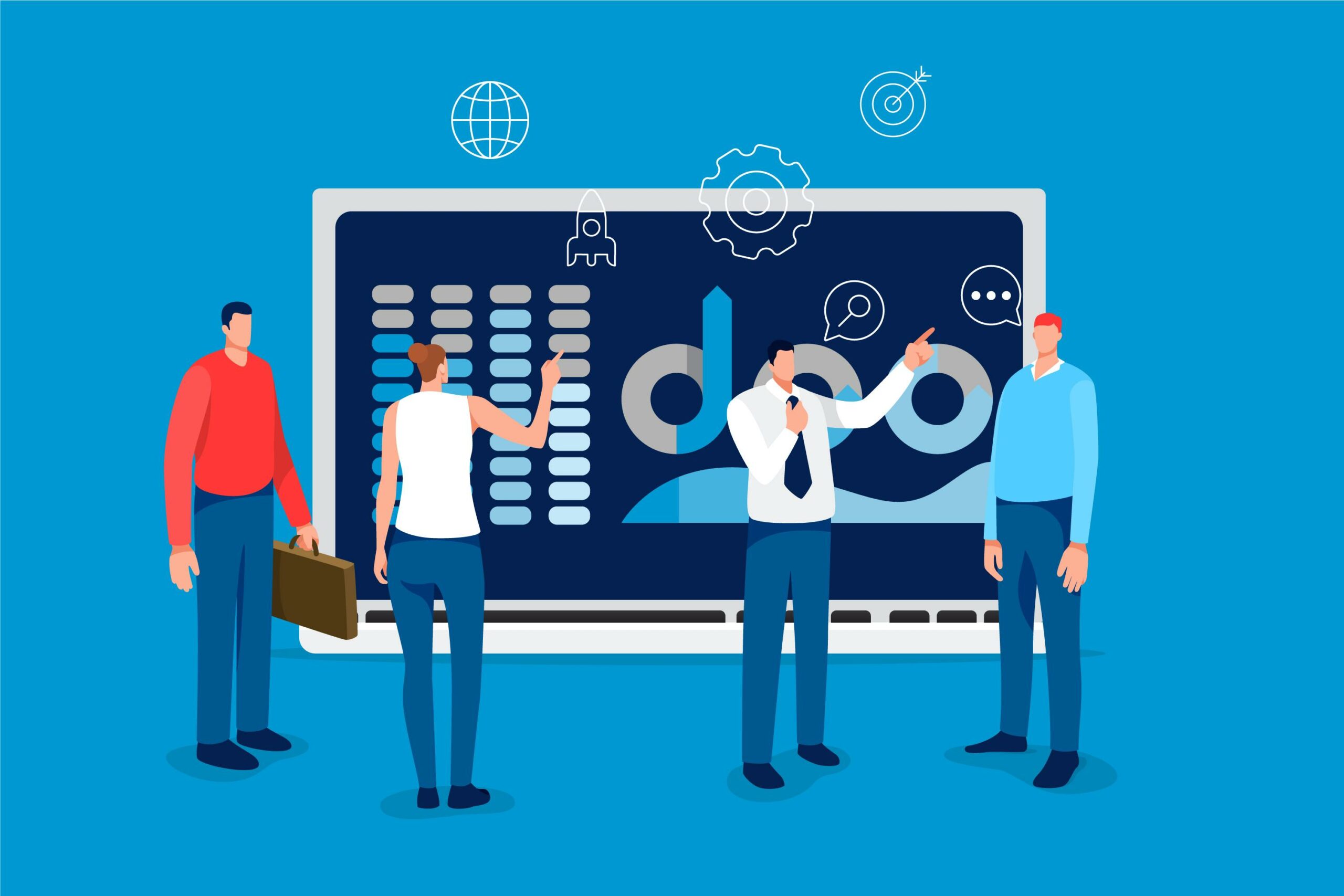
Use analytics in your CLM system to make smart decisions using contract data. Automate tasks to work faster and have more time for important projects. Make contracts easy to find and share so everyone can work together better. By using these features well, you can make your CLM system work its best and bring big benefits to your organization.
Leveraging Analytics for Better Decision-Making
Harness the power of analytics within your CLM system to drive informed decision-making. By utilizing contract data and performance metrics, you can uncover valuable insights that impact strategic choices. Implement AI-driven tools for contract analytics to forecast trends, analyze clauses, and optimize procurement processes.
With the right metrics and dashboards in place, your organization can proactively identify risks, opportunities, and areas for improvement, ultimately leading to more effective decision-making across the contract lifecycle.
Automating Routine Tasks to Increase Efficiency
One key aspect of maximizing the efficiency of your CLM solution is automating routine tasks. By leveraging workflow automation and AI capabilities within your CLM system. You can streamline manual processes, such as document storage and data entry, leading to significant time savings and error reduction.
Automation not only boosts productivity but also allows your team to focus on more strategic initiatives, ultimately enhancing overall contract lifecycle management performance.
Enhancing Contract Visibility and Accessibility
By enhancing contract visibility and accessibility within your organization, you can streamline processes and improve overall efficiency. Utilizing a robust CLM solution enables easy tracking and monitoring of contracts, ensuring key stakeholders have immediate access to relevant information.
Enhanced visibility allows for better decision-making based on real-time data and analytics. Accessibility ensures that important contract data is readily available when needed, facilitating smoother contract lifecycle management. Improved visibility and accessibility are essential components for maximizing the benefits of your CLM system.
Related Article: Best Contract Management Software: Top 10 CLM In 2024
FAQs
What Makes a CLM Vendor Stand Out?
To stand out, a CLM vendor must align solutions with individual organizational needs. Scalability, compliance measures, security protocols, and flexible pricing models differentiate top vendors. Understanding unique requirements and offering tailored solutions are key factors that set a CLM vendor apart.
What Support Options Should I Look for in a CLM Vendor?
When choosing a CLM vendor, consider support options like 24/7 assistance, dedicated customer success managers, and extensive training resources. Look for a vendor with a reputation for excellent customer service and quick response times to ensure smooth implementation and ongoing support.
Conclusion
In Conclusion, selecting the best CLM vendor involves a thorough assessment of your organization’s needs, scalability of solutions, compliance measures, and pricing models. Successful implementation hinges on preparing your team, ensuring smooth integration, and maximizing benefits through analytics and automation.
Look for essential features and understand the importance of CLM for your business growth. When evaluating vendors, consider standout qualities and support options that align with your requirements. By choosing the right CLM vendor, you can streamline contract management processes, enhance decision-making, and boost operational efficiency effectively.
